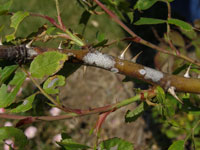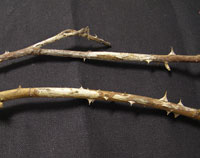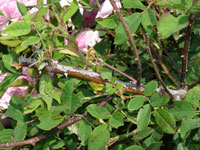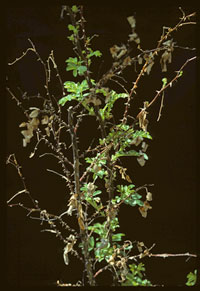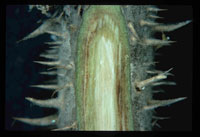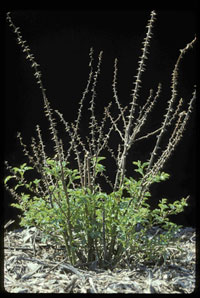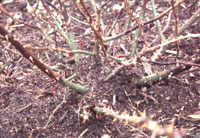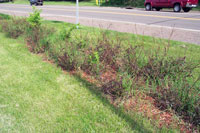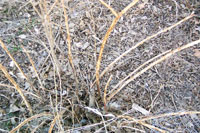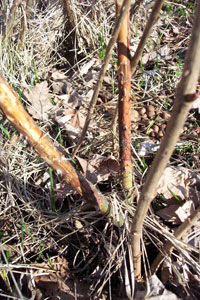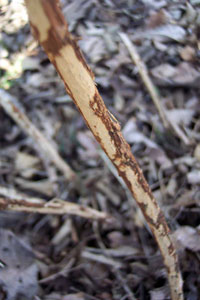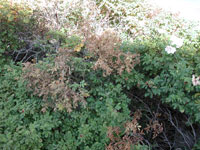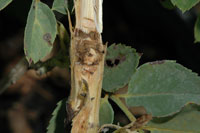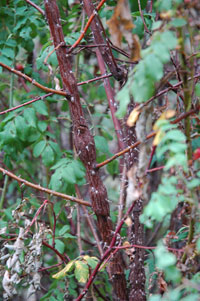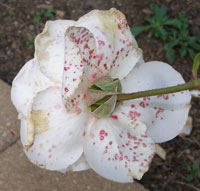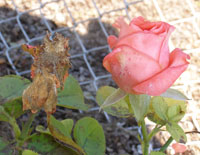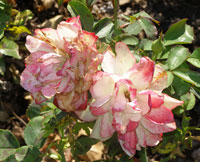Extension > Garden > Diagnose a problem > What's wrong with my plant? > Annuals and Perennials > Roses > Dying stems
Roses > Stem > Dying stems
1 of 7
Canker
Several different fungi
- Dead branch within otherwise healthy plant
- Light colored blotches or patches, often with a reddish purple border, along dead stem
- Some patches may have flaky, loose or cracked epidermis (surface layer)
- Tiny black bumps may be seen on dead area of stem
- More information on canker
2 of 7
Winter injury
- Occurs in spring
- New growth emerges then wilts and dies as weather turns warm
- Dark streaks visible in wood if bark is scraped away
- More information on winter injury
3 of 7
Winter Kill
- Stems fail to leaf out in spring
- Stems are evenly brown and dead, with no unusual discolored patches
- More information on winter kill
4 of 7
Rodent Damage
Rabbits, mice, voles, and other rodents
- Leaves fail to leaf out or leaf out very poorly in the spring
- Bark is removed around the base of the cane and there are signs of chewing or gnawing
- If chewing occurred in the roots, plant may be wobbly and loosely anchored in the ground
- More info on controlling wildlife
5 of 7
Rose stem girdler
- A species of flatheaded borer
- Small (1/4 inch long) larvae, bullet-shaped, iridescent gold; rarely seen
- Occurs during summer
- Clumps of leaves wilt and turn brown
- Also look for swelling in stem
- More info on rose stem girdler
6 of 7
Gray Mold
Botrytis cinerea
- Small red rings or flecks on white or light colored petals
- Brown irregular spots on petals
- Completely brown, curled over, dead flower buds
- Brown sunken area on stem
- Gray fuzzy spores produced in cool wet weather
- More information on gray mold
7 of 7
- - NO PHOTO AVAILABLE -
Verticillium Wilt
Verticillium dahliae and Verticillium ablo-atrum
- Tips of young canes wilt
- Leaves turn yellow, then brown and then fall off
- Damage starts on the lowest leaves first and then moves upward
- Canes die and turn brown from the tip down
- Purplish black streaks occur on stems before they dieback
- More information on verticillium wilt



